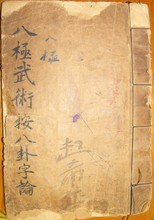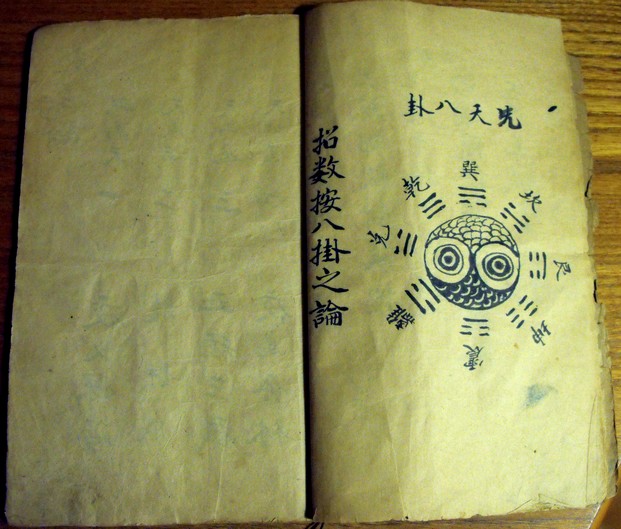Principles of BajiQuan
Theory and philosophy ...
Extract from a 19th century manual showing the relations
between BajiQuan and YiJing theory
between BajiQuan and YiJing theory
Although BajiQuan was mainly developed during the first generations by members of the Hui minority who are traditionally of Moslem confession, the theoretical and philosophical concepts of this martial art are based on the Chinese traditional thought, and more particularly on taoism. This is due to the fact that through the centuries, the major part the Hui did fully integrate culturally into the Chinese society, and thus they have adopted a large amount of basic principles in their daily life and religious practice. For this reason, it can be noted that most ancient Hui frequently studied some chinese classics from Confucianism and other schools of thought, such as the “Book of the changes” (YiJing, 易经) or the Annals of springs and the autumns” (ChunQiu, 春秋) along with the Koran (GulanJing, 古兰经). Consequently, BajiQuan, like many other styles practiced by the Hui (XingYi Quan, XinYi LiuHe Quan, etc) constantly refers to some principles classically encountered in Chinese martial arts.
This influence can be found in the name of the style. The term “Baji” (八极, literally “8 extremes”) which in Chinese indicates an “infinitely remote place” or “the very ends of the earth” comes from a Chinese classic dating from the 2nd century (the Huai Nan Zi, 淮南子), which is strongly influenced by Taoism. In addition, the practice of Baji Quan constantly refers to classical concepts of internal Chinese martial arts, such as : the alternation of Yin & Yang, the respect of the 6 internal and external harmonies of the body, the circulation of the internal energy (called Qi, 气), etc. Moreover, the names of many moves in BajiQuan are referring to chinese traditional deities, such as like :
- ErLang Dan Shan (二郎担山) : ErLang wears a mountain on his shoulders
- Yan Wang San Dian Shou (阎王三点手) : the 3 pointing hands of Yan, king of hell
- Bai GuanYin (拜观音) :venerating GuanYin, goddess of mercy
etc.


